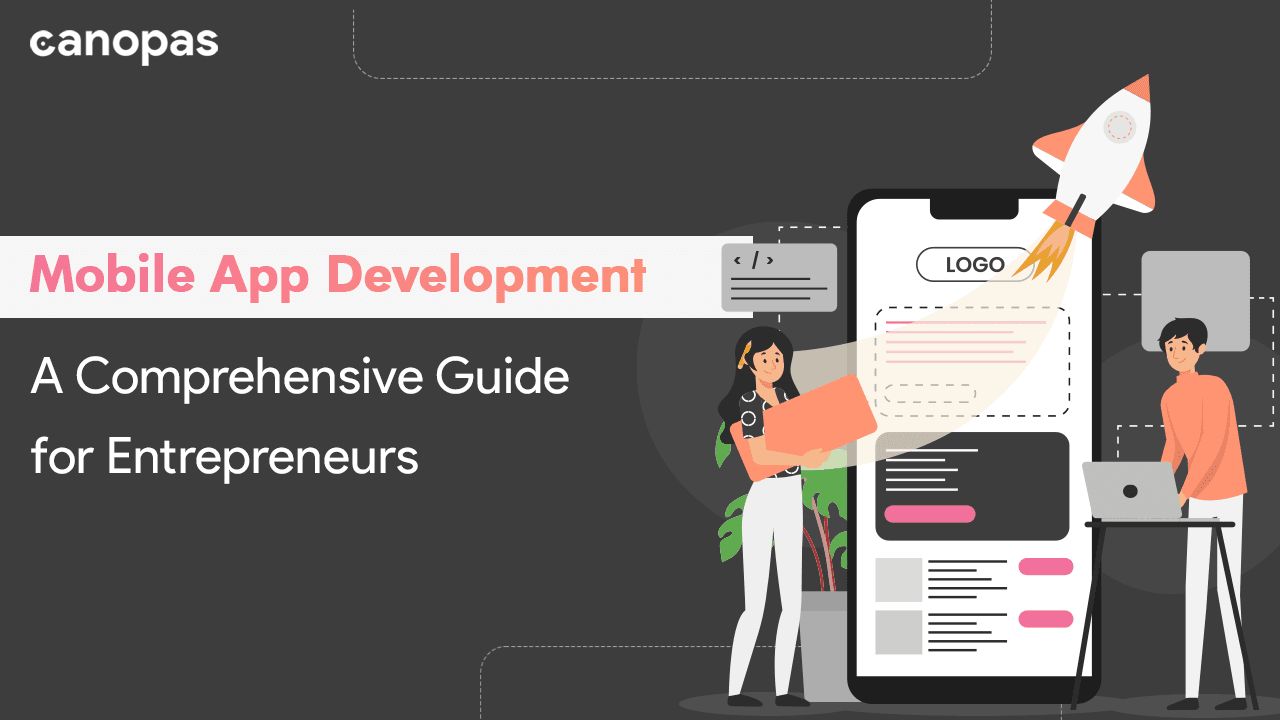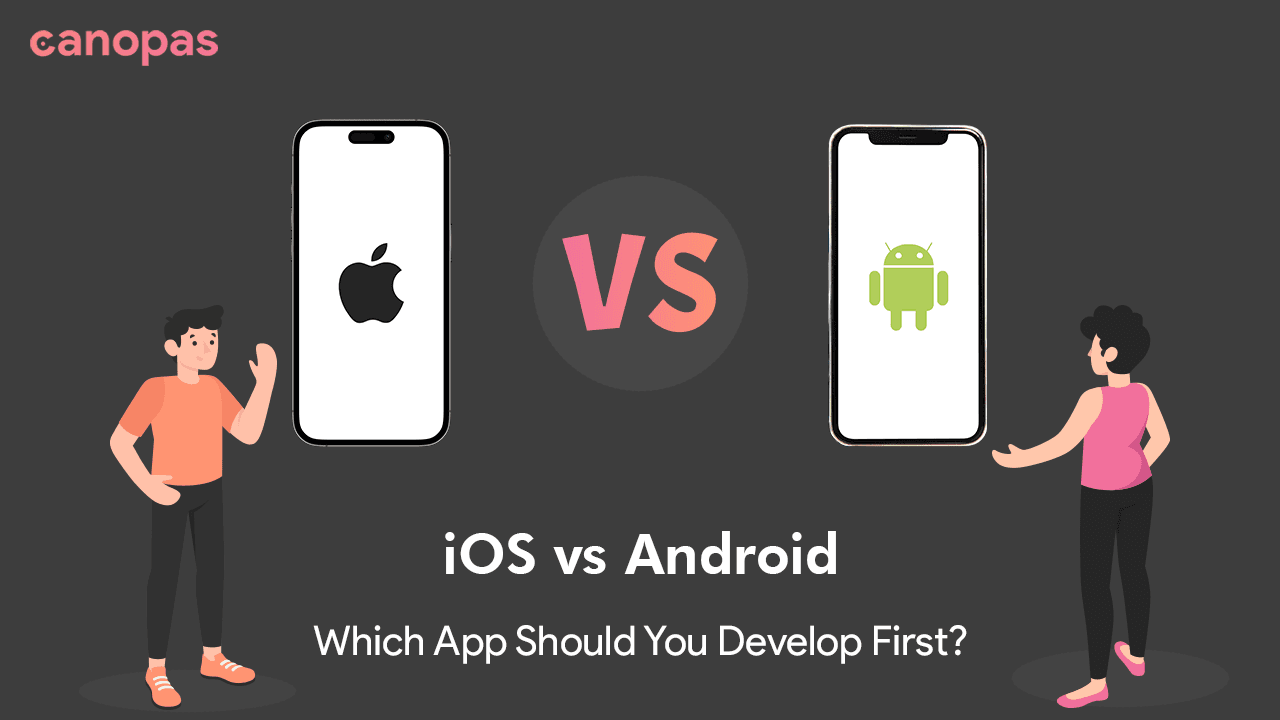
5 Ways Mobile App Analytics Can Skyrocket Your Business Growth
Introduction
Imagine having a crystal ball that could reveal hidden insights about your customers' behaviors, preferences, and needs. That's the power mobile app analytics brings to your fingertips.
In the dynamic landscape of business today, these insights are not just valuable; they are crucial for your growth and competitiveness.
But how exactly do mobile app analytics transform these digital footprints into a ladder for business success?
This article is your gateway to understanding and harnessing the power of mobile app analytics.
We will explore five essential ways these analytics can catapult your business growth, transcending beyond mere data interpretation.
Whether you're at the helm of a startup or steering an established enterprise, the strategic application of these insights can revolutionize your approach, elevate user experiences, and drive your business decisions with precision.
Step into the world of mobile app analytics with us, where each user interaction is not just a metric but a potential goldmine for strategic growth and innovation.
These aren't just numbers on a screen; they're the pulse of your app, the voice of your customers, and the blueprint for your business's future.
Understanding Mobile App Analytics
In an era where every tap, swipe, and interaction holds meaning, understanding mobile app analytics becomes crucial for any business venturing into the digital space.
But what exactly does this entail, and how can it become a cornerstone of your business's success?
Defining Mobile App Analytics
At its core, mobile app analytics is about gathering data from your app and interpreting it to make informed decisions.
It encompasses a broad spectrum of data, from how users interact with your app to transactional data and everything in between.
This information helps businesses to not only understand user behavior but also to anticipate needs, predict trends, and identify areas for improvement.
Types of Analytics
- User Engagement Analytics: These metrics give insights into how users are interacting with your app. Metrics like session length, frequency of use, and feature engagement paint a picture of user behavior.
- Performance Analytics: This involves understanding the technical aspects of your app, such as load times, crash reports, and system failures, ensuring your app runs smoothly and efficiently.
- Revenue Analytics: For apps with monetization strategies, this type of analytics is key. It tracks earnings from various channels, be it in-app purchases, subscriptions, or advertisements.
Modern analytics tools do more than just collect data; they offer insights and visualizations that make the information accessible and actionable. By using these tools, businesses can segment users, track key performance indicators (KPIs), and even use predictive analytics to foresee future trends.
In a nutshell, mobile app analytics is not just about collecting data; it's a strategic tool. By understanding and utilizing this data, businesses can make informed decisions that lead to improved user experiences, enhanced product offerings, and, ultimately, business growth.
As we move forward, we will explore how exactly these analytics translate into actionable strategies to drive your business forward. Each of the following sections will take a closer look at specific ways mobile app analytics can be a game-changer for your business.
Enhancing User Experience and Satisfaction
One of the most compelling advantages of mobile app analytics is the ability to deeply understand and enhance the user experience (UX).
By leveraging data, you can transform your app into not just a tool, but an experience that resonates with your users. Here are some ways you can transform your app.
Identifying User Behavior Patterns and Preferences
- Behavioral Analytics: Dive into the data to uncover how users interact with your app. Which features are they using the most? Where do they spend the most time? Understanding these patterns helps you to tailor the user experience to match user preferences.
- Feedback Loops: Use analytics to gather and analyze user feedback. This direct input is invaluable for making user-centric improvements.
Personalizing the User Experience
- Customization Based on Data: Use analytics to offer personalized content or features to users. For example, if data shows that certain users prefer specific types of content, your app can automatically display more of that content type to those users.
- Predictive Analytics: Implement predictive analytics to anticipate user needs. This can include personalized recommendations or preemptive customer support.
Improving App Usability and Functionality
- Usability Testing: Analyze how users navigate your app and identify any pain points or barriers. This could involve simplifying the user journey or redesigning elements for better accessibility.
- A/B Testing: Use analytics to test different versions of a feature to see which performs better and why. This data-driven approach ensures that changes are based on user preference, not guesswork.
Building User Trust Through Transparency and Control
- Data Privacy: Use analytics to ensure you're respecting user privacy and complying with data protection regulations. Transparency about data usage can build trust.
- User Control: Allow users to control their data and privacy settings. Analytics can guide you on which controls are most valued by users.
Continuous Improvement Based on User Feedback
- Iterative Development: Mobile app analytics allow for a continuous feedback loop. Implementing changes based on user feedback and then measuring the impact of those changes can lead to a cycle of constant improvement.
Enhancing user experience is not a one-time task but an ongoing process.
By harnessing the power of mobile app analytics, you can create a dynamic, user-focused app that evolves with your users’ needs and preferences, leading to increased satisfaction, loyalty, and ultimately, business growth.
Optimizing Marketing Strategies with Mobile App Analytics
Effective marketing is pivotal for the success of any app, and mobile app analytics are the compass that guides these marketing efforts in the right direction.
Here's how analytics can transform your marketing strategies.
Tracking and Analyzing Marketing Campaign Performance
- Measuring Effectiveness: Utilize analytics to track the performance of marketing campaigns. This includes monitoring app downloads, user engagement, and other KPIs in response to specific marketing initiatives.
- ROI Analysis: By correlating marketing spend with app performance metrics, you can gauge the return on investment for different marketing channels and campaigns, helping you allocate your budget more effectively.
Refining Audience Targeting and Segmentation
- Understanding Your Audience: Use data to build detailed user profiles and segment your audience based on behavior, demographics, and preferences. This enables more targeted and relevant marketing efforts.
- Customized Messaging: Tailor your marketing messages and promotions to different segments, increasing their relevance and effectiveness.
Influencing Marketing Budget Allocation
- Data-Driven Decisions: Analyze which marketing channels (social media, email, paid ads, etc.) are yielding the best results and allocate more resources to them accordingly.
- Adapting Strategies: Stay flexible and adapt your marketing strategies based on real-time analytics. If one approach isn’t working as expected, pivot quickly to more effective tactics.
Enhancing User Retention Through Targeted Campaigns
- Retention Strategies: Develop campaigns specifically aimed at increasing user retention. Use analytics to identify the factors that keep users engaged and design your marketing around these insights.
- Re-engagement Campaigns: Identify dormant users and create targeted re-engagement campaigns using insights gleaned from their previous interactions with your app.
Staying Ahead of Market Trends
- Trend Analysis: Keep an eye on emerging trends within your app’s usage data. Analytics can help spot new opportunities or shifts in user behavior, allowing you to adjust your marketing strategy proactively.
Mobile app analytics not only offer a snapshot of the current performance of your marketing efforts but also provide deep insights that can be used to fine-tune and evolve your strategies.
In the next section, we will delve into how analytics are instrumental in boosting user retention rates, a key factor in long-term business success.
Boosting User Retention Rates Through Analytics
Retaining users over the long term is often more cost-effective than acquiring new ones. This is where mobile app analytics play a pivotal role, providing insights that help you keep your users engaged and loyal.
Understanding and Reducing Churn Rates
- Churn Analysis: Use analytics to identify when and why users are leaving your app. Pinpoint specific stages or actions that lead to user drop-off.
- Proactive Measures: Implement changes based on this analysis to address issues that cause churn. This could include improving app features, user experience, or customer support.
Personalization as a Retention Tool
- Tailoring User Experience: Leverage data to personalize the user experience. Customized content, recommendations, and features based on user behavior can significantly enhance engagement and loyalty.
- Predictive Behavior Modeling: Use predictive analytics to anticipate user needs and offer solutions or content before they even search for it.
Enhancing Engagement with Targeted Notifications
- Smart Notifications: Send notifications based on user behavior, preferences, and engagement patterns. Analytics can help you determine the best time and content for these notifications to maximize effectiveness.
- A/B Testing for Notifications: Continuously test different styles and timings for notifications to find the most effective approach for various user segments.
Rewarding and Recognizing Loyal Users
- Loyalty Programs: Develop loyalty programs informed by user data. Offer rewards that are genuinely appealing to your most engaged users.
- Exclusive Offers: Create exclusive offers or features for long-term users. Use analytics to determine what these offers should entail to be truly enticing.
Gathering and Implementing User Feedback
- Feedback Loops: Encourage and analyze user feedback. This direct input is invaluable for improving the app in ways that matter to your users.
- Responsive Changes: Show your users that their feedback matters by implementing changes based on their suggestions where feasible.
User retention is a nuanced aspect of business growth, heavily reliant on understanding your users deeply and responding to their needs.
Mobile app analytics provide the insights necessary to make these informed, user-centric decisions.
In the next section, we'll explore how analytics influence product development and innovation, keeping your app and business at the forefront of the market.
Driving Product Development and Innovation Through Analytics
In the fast-evolving app market, staying ahead requires not just meeting but anticipating user needs.
Mobile app analytics provide invaluable insights that can guide your product development and innovation efforts, ensuring your app remains relevant and competitive. Here are some of the examples.
Informing Feature Development with User Insights
- Feature Usage Analysis: Analyze which features are most popular among your users and why. This data helps prioritize which features to develop further or introduce next.
- Identifying Gaps: Use analytics to spot functionality gaps or user pain points. Developing solutions to these problems can make your app more valuable to your users.
Predictive Analysis for Market Trends
- Anticipating Needs: Leverage predictive analytics to anticipate market trends and user needs. This proactive approach allows you to develop features or services before they're in high demand.
- Staying Ahead of the Curve: Constantly monitor user data to predict and respond to evolving user behaviors, keeping your app ahead of competitors.
Enhancing Product Quality and Performance
- Performance Analytics: Regularly review performance analytics to identify and rectify any issues, ensuring your app remains fast, reliable, and user-friendly.
- Continuous Improvement: Use analytics as a tool for continuous improvement, refining features and interfaces based on user feedback and behavior patterns.
Tailoring Experiences to Different User Segments
- Segmentation Strategies: Develop features and experiences tailored to different user segments. Analytics can help you understand the distinct needs and preferences of each segment.
- Personalization at Scale: Implement scalable personalization strategies in your app, ensuring that each user feels the app is uniquely suited to them.
Data-Driven Decision Making in Development
- Prioritizing Resources: Use analytics to guide resource allocation in development. Focus on areas with the highest potential for ROI based on user interaction and feedback.
- Objective Assessments: Rely on data for decision-making, reducing bias and increasing the chances of success for new features or changes.
Mobile app analytics are not just about understanding your current app; they are about shaping its future.
By leveraging these insights, you can ensure your app evolves in line with user expectations and market demands, driving innovation and keeping your business at the cutting edge.
In the next section, we will discuss how to translate these analytics into actionable strategies for making informed business decisions.
Making Informed Business Decisions with Mobile App Analytics
The ultimate power of mobile app analytics lies in their ability to inform strategic business decisions. By transforming data into actionable insights, businesses can navigate the competitive app landscape with greater precision and confidence. They can benefit multiple ways like below.
Strategic Planning Based on User Data
- Long-Term Planning: Use analytics to inform your long-term strategic planning. This includes expanding market reach, developing new features, or pivoting the app’s focus based on user engagement and feedback.
- Risk Management: Identify potential risks and challenges through trend analysis and user feedback, allowing for proactive rather than reactive decision-making.
Enhancing Revenue Streams
- Monetization Strategies: Analytics provide crucial insights into the most effective monetization strategies for your app, whether through in-app purchases, subscriptions, or advertising.
- Optimizing Pricing Models: Use user behavior data to optimize pricing models for various features or services within the app.
Competitive Analysis and Market Positioning
- Understanding the Competition: Analyze how your app performs against competitors and use these insights to refine your market positioning.
- Identifying Unique Selling Points (USPs): Utilize analytics to understand what sets your app apart and leverage these USPs in your marketing and development strategies.
Resource Allocation and Investment
- Budgeting with Precision: Allocate your budget more effectively by focusing on areas that analytics show are most critical to user satisfaction and retention.
- Investment Decisions: Make informed decisions about where to invest, be it in marketing, development, or new market exploration, based on data-driven insights.
Fostering a Data-Driven Culture
- Empowering Teams with Data: Encourage different departments in your organization to use analytics in their decision-making processes.
- Continuous Learning and Adaptation: Promote a culture of continuous learning and adaptation, where decisions are regularly informed and adjusted based on new data and analytics insights.
Incorporating mobile app analytics into your decision-making process isn’t just about responding to the current state of your app; it’s about strategically positioning your business for future success.
By leveraging these insights, you can make decisions that are not only reactive to current trends but proactive in shaping the future trajectory of your business.
The Transformative Impact of Mobile App Analytics on Business Growth
As we’ve explored in this article, mobile app analytics are not just a series of data points; they are the lifeblood of strategic decision-making in the digital era.
From enhancing user experience to refining marketing strategies, boosting retention rates, driving product innovation, and informing business decisions, the power of these analytics cannot be overstated.
In today’s competitive market, embracing mobile app analytics is not just an option but a necessity for businesses looking to thrive. The insights gleaned from these analytics provide a roadmap for sustained growth, innovation, and success.
Whether you are in the early stages of developing a mobile app or looking to enhance an existing one, the integration of analytics into your strategy is imperative.
By doing so, you position your business to not only respond to the current needs of your market but to anticipate and shape future trends.
Ready to Transform Your Business with Analytics?
If you're looking to integrate powerful analytics into your mobile app and harness these insights for business growth, we're here to help.
Contact us today for a consultation and take the first step towards unlocking your app's full potential.








Let's Work Together
Not sure where to start? We also offer code and architecture reviews, strategic planning, and more.
